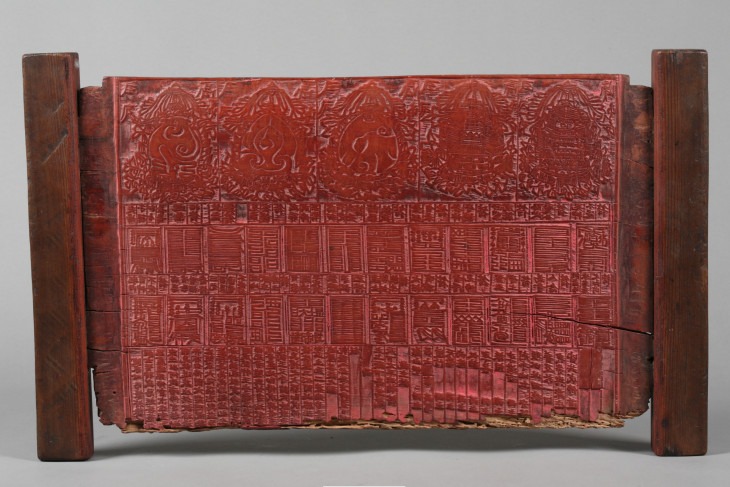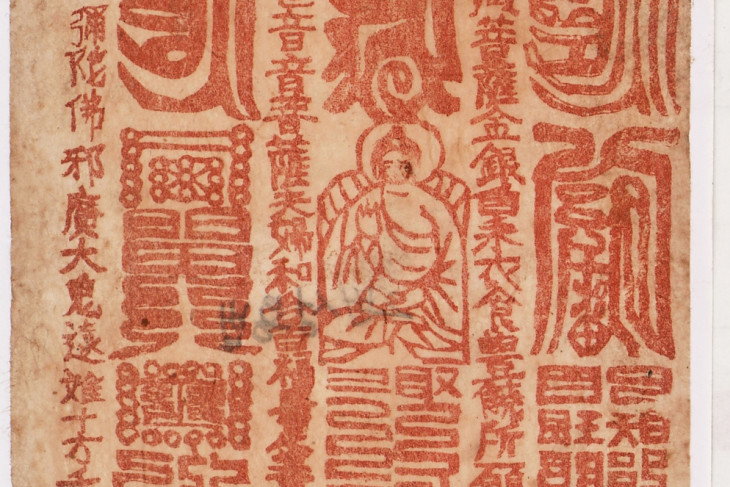A DePauw University professor has won a fellowship to write the first book in any language about the use of healing talismans in Korean Buddhism.
Sujung Kim, associate professor of religious studies, recently won a $70,000 fellowship from the The Robert H. N. Ho Family Foundation Research Fellowships in Buddhist Studies, through the American Council of Learned Societies, to conduct cutting-edge research and write her second book, “Korean Magical Medicine: Healing Talismans in Korean Buddhism.” The fellowship will relieve her of teaching duties in the 2022-23 academic year.
Kim’s book project was inspired by the ongoing COVID-19 pandemic, which “got me to think more critically and seriously about what medicine and healing meant in a broader arc of human history.” Even today, some people wear not only masks but talismans to ward off the coronavirus, she said.


Kim’s book examines the socio-cultural, religious, medicinal and materials roles that talismans played in the life of ordinary Korean people in the Chosŏn period, 1392-1910 C.E. Her research will focus primarily on two-dimensional, paper talismans – documents printed from wooden blocks carved with abstract, illegible characters and mass produced at Buddhist temples. Believers did not think of the talismans as a representation of the healing deity but a physical manifestation of the deity itself, she said. Some would put a talisman against the ailing part of their bodies; others would burn a talisman and ingest it to maximize its healing power. Deemed to be “magical” and therefore superstitious, talismans have never been studied in this way.
In addition to being the first to examine healing talismans in Korean Buddhism, Kim’s book is significant because it focuses on a marginalized group – non-elite Buddhist monks and nuns, as well as sick and poor people – in the study of Korean religions. It also “provides an up-to-date contribution to the scholarly community around the world that is grappling with the social, cultural, ethical and religious dimensions of disease during the COVID-19 pandemic,” Kim said.
Browse other stories
-
Athletics
-
Men's Swimming & Diving - DePauw Falls to 11th-Ranked WashU
-
Men's Basketball - Tigers Top Terriers
-
Women's Basketball - DePauw Defeats Hiram in NCAC Battle
More Athletics
-
-
News
-
Roll Tigs! Four Fall Teams Claim NCAC Titles
-
Fall 2024 Dean’s List recognizes exceptional academic achievements
-
Students extend legacy of Ethics Bowl success
More News
-
-
People & Profiles
-
11 alums make list of influential Hoosiers
-
DePauw welcomes Dr. Manal Shalaby as Fulbright Scholar-in-Residence
-
DePauw Names New Vice President for Communications and Strategy and Chief of Staff
More People & Profiles
-
-
Have a story idea?
Whether we are writing about the intellectual challenge of our classrooms, a campus life that builds leadership, incredible faculty achievements or the seemingly endless stories of alumni success, we think DePauw has some fun stories to tell.
-
Communications & Marketing
101 E. Seminary St.
Greencastle, IN, 46135-0037
communicate@depauw.eduNews and Media
-
News media: For help with a story, contact:
Bob Weaver, Senior Director of Communications.
bobweaver@depauw.edu.